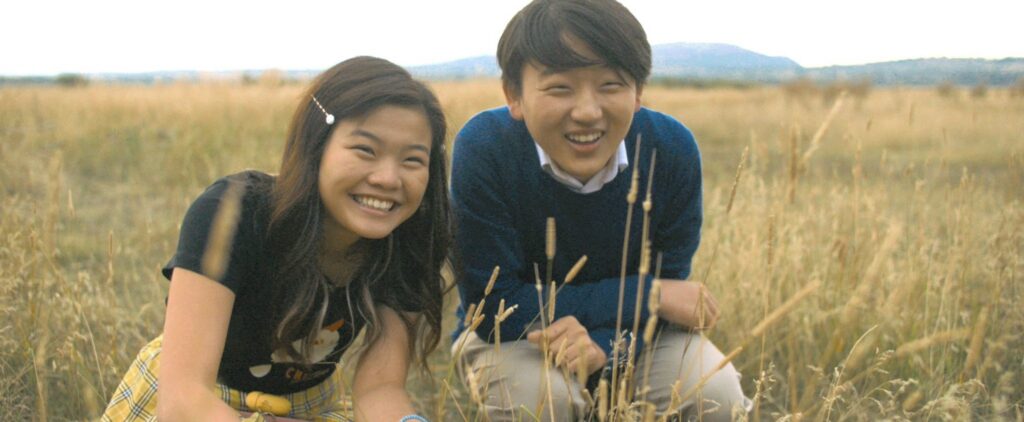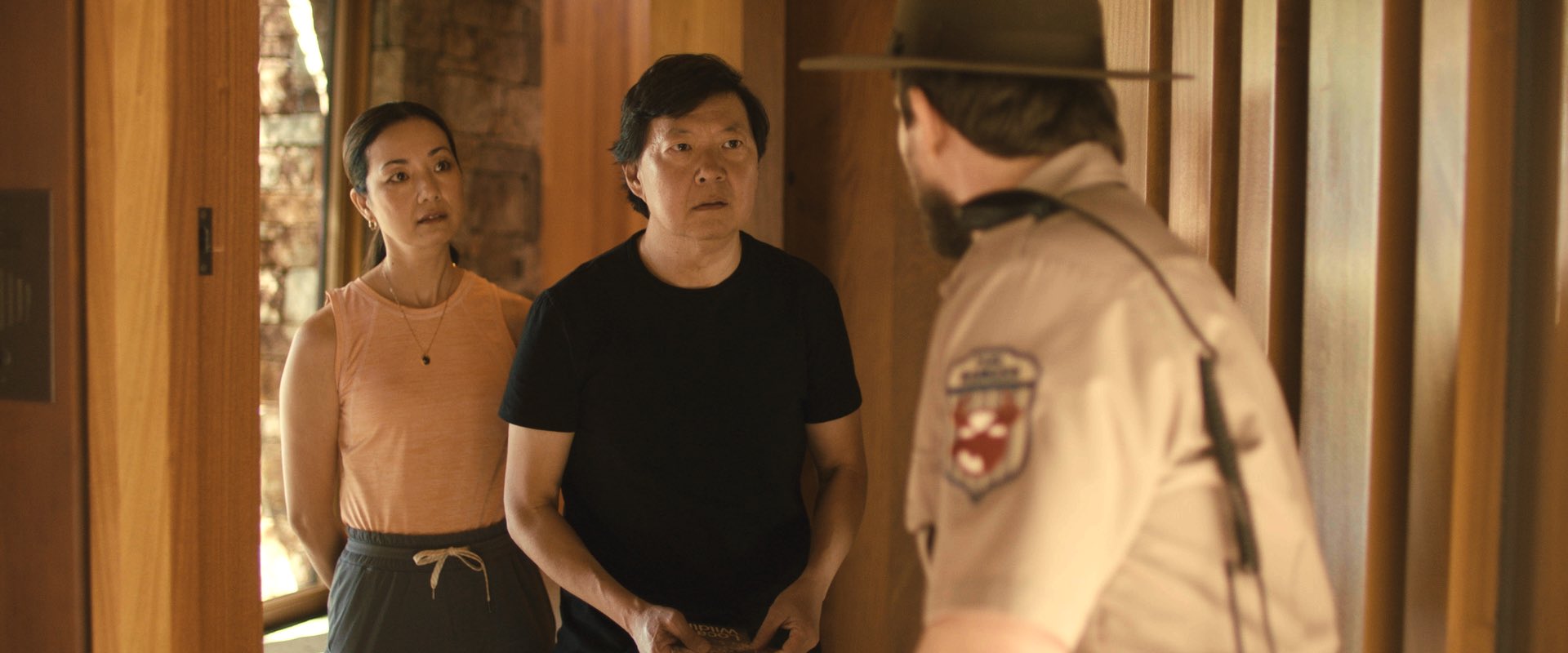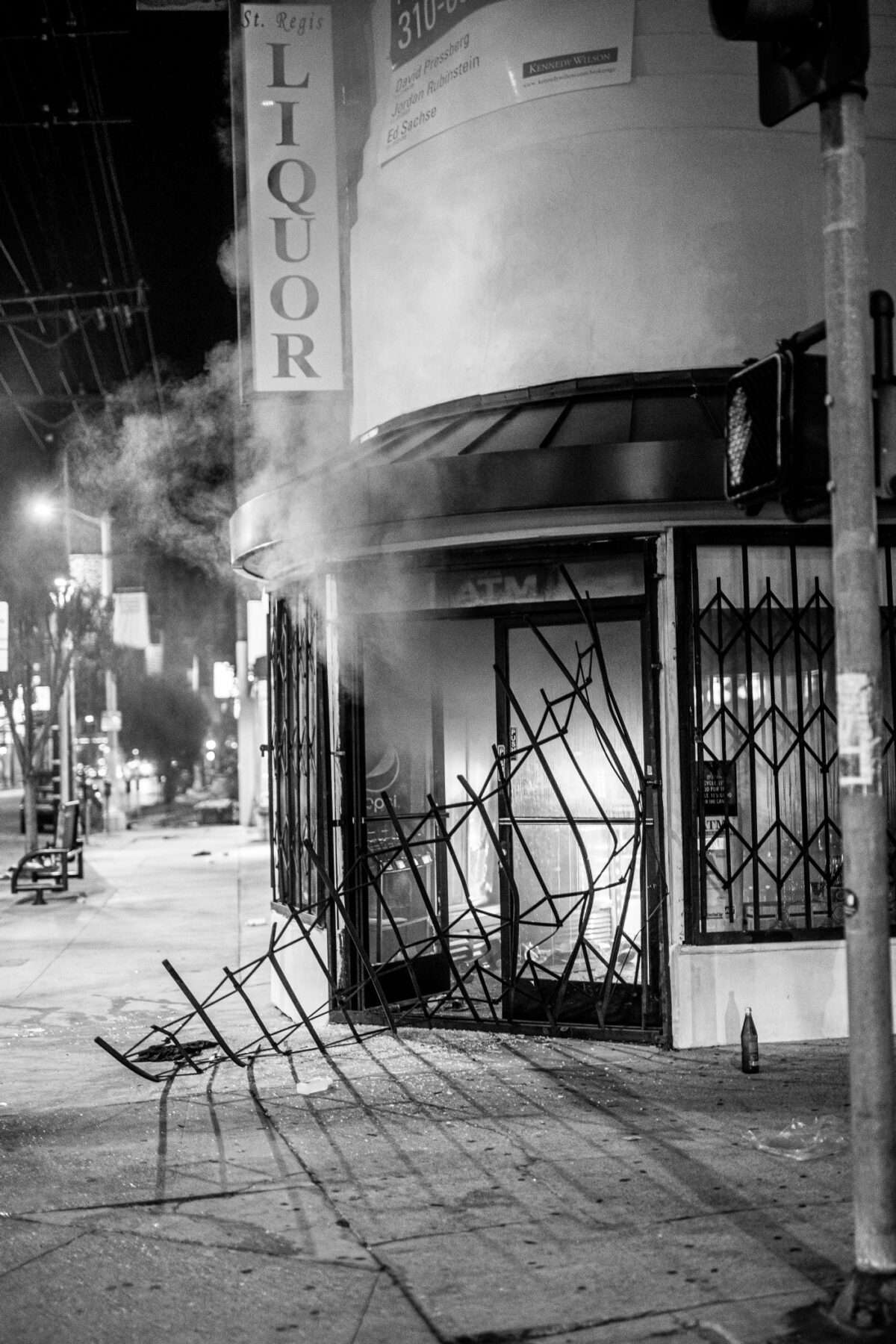An expansive, desolate wilderness. A lone, gleaming mansion on a hill. A family arrives at their palatial new abode, but spends more time casting haunted, far-off looks into the distance than luxuriating in the fineries that surround them.
From the beginning, A Great Divide has the key elements of a gothic tale – the kind rife with displacement, dark secrets, ominous surroundings, and the pursuit of love amid it all.
But as it turns out, there actually isn’t much mystery to the story. The narrative focuses on a new-in-town Korean American family, and each of their struggles—both internal and external—against anti-Asian racism in a small Wyoming town.
What drives the tension in the film is not so much the unknown, but the uncomfortably familiar, at least for Asian Americans and other people of color watching it.
Emerson Min stars as Benjamin, an introverted teen who struggles to acclimate to a predominantly white town after growing up in the more diverse Bay area. Jae Suh Park plays Jenna, Benjamin’s steely mother whose unflinching gaze dares anyone to try her patience. In a rare dramatic turn, Ken Jeong is Isaac, a people-pleaser who uses his avuncular humor to defuse tense situations at his own expense. Along for the ride is Ellie (Miya Cech) a Chinese American transracial adoptee nursing a burgeoning romance with Benjamin. Rounding out the main cast, Meewah Lee plays Benjamin’s beloved grandmother. The screenplay is written by Jeff Yang – one of the authors of the New York Times bestselling Rise: A Pop History of Asian America from the Nineties to Now – and directed by Jean Shim in her feature film debut.
At times the film can feel like a compendium of anti-Asian racism—an after-school special of teaching moments. We get a scene where a white teacher talks to the Lees about honor, then put her palms together and bows to them; a scene where white friends of Isaac insist the people in their town “don’t have a racist bone” in their body; a scene where a white rancher intimidates Benjamin and Ellie on the road, and so on.
With each new, vulnerable position that the protagonists are placed in, I feel myself clench up with a familiar “fight or flight” flutter in my chest as I wait for things to escalate—or resolve in quiet, swallowed humiliation.
But the film is more than a mere collection of micro- and not-so-micro aggressions, as we are presented with how differently each character interprets and reacts to bigotry. This is where the writing really shines in maintaining complexity and coherence in the way each Asian character grapples with race and identity in a distinct way.

One of the most satisfying through-lines in the film involves Jenna’s flinty attitude towards displays of racism, and the way it clashes with Isaac’s simpering de-escalation efforts (Jeong’s perennial goofball cringe is used for excellent effect here). Jenna blames this perceived passivity on Isaac’s privileged background as a diplomat’s son, and contrasts that to her own history as a child of a war refugee. In one key moment, their differences on handling racial strife escalates into a shouting match, capped off with an electrifying monologue from Jeong—a satisfying subversion of his usual comic persona.
But although A Great Divide boasts a robust cast of characters, its 106-minute run time betrays several plotlines that would have benefited from more time to mature. This could easily have been a ten-episode limited series with breathing room for the themes and relationships to play out with more nuance.
There’s the tentative friendship between the secretly sensitive white jock Hunter (West Mulholland) and shy Benjamin (Emerson Min); the xenophobic local royalty who owns half the land in town; Jenna’s tumultuous relationship with her mother and her own drive to do better for her son Benjamin; Isaac’s career journey hitting the bamboo ceiling… and we haven’t even gotten to the extremely tense situation involving a snake bite, fraud, and blackmail.
These are all interesting storylines and compelling characters. If only there were more time for viewers to get to know these personalities and watch them evolve as their struggles play out—especially given a talented cast that is more than capable of the sensitive, restrained, and emotionally honest performances that makes this film truly shine.
A Great Divide is an earnest, serious-minded examination of the ways systemic racism shapes and damages lives, and while uneven at times, offers a vision of hope and resilience for the future.
A Great Divide premiered at the Bentonville Film Festival earlier this month.


